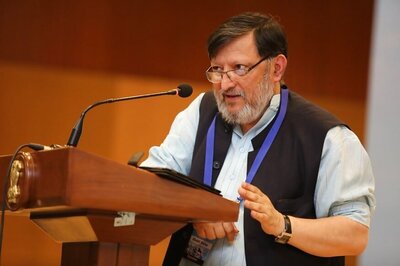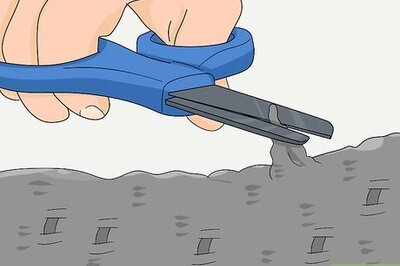
views
The Luna-25 probe, Russia’s first Moon mission in almost 50 years, crashed on the Moon on Sunday after an incident during pre-landing manoeuvres.
Russian space agency Roscosmos said that communication with Luna-25 was lost at 2:57 pm (local time) on Saturday. It added that measures taken on Saturday and Sunday to locate the craft and make contact with it were unsuccessful.
“During the operation, an abnormal situation occurred on board the automatic station, which did not allow the manoeuvre to be performed with the specified parameters,” the agency said in a Telegram post.
The Russian craft, launched on August 10, had been racing against Chandrayaan-3 spacecraft, which is scheduled to land on the moon’s south pole on Wednesday.
How Luna-25 Lander Crashed?
The preliminary findings said that the lander “ceased to exist following a collision with the Moon’s surface.”
The space agency said an investigation would be launched into the causes of the crash. However, it didn’t give any indication of the exact nature of technical problems.

The 800-kilogram Luna-25 probe was to have made a soft landing on the lunar south pole, the first in history. Roscosmos said it wanted to show Russia “is a state capable of delivering a payload to the moon,” and “ensure Russia’s guaranteed access to the moon’s surface.”
Russia has not attempted to land on a celestial body since 1989, when the Soviet Union’s ill-fated Phobos 2 probe to explore the moons of Mars failed due to a computer malfunction onboard.
Probable Causes Behind Failure
Luna-25 space craft has planned soft landing on Monday on the moon’s south pole which is relatively unexplored. The lunar south pole is of particular interest to scientists, who believe the permanently shadowed polar craters may contain frozen water in the rocks that future explorers could transform into air and rocket fuel.
However, it spun out of control moving into an unpredictable orbit and ceased to exist as a result of a collision with the surface of the Moon.
According to Anatoly Zak, the creator and publisher of www.RussianSpaceWeb.com, the flight control system of Luna-25 was a vulnerable area, which had to go through many fixes.
Zak said Russia had also gone for the ambitious landing before undertaking a simpler orbital mission, which has been taken by the US, China and India.
Roscosmos chief Yuri Borisov had said the venture would be “risky” and informed President Vladimir Putin in June that the probability of it succeeding was “around 70 percent”, AFP reported.
Moreover, Russian scientists have repeatedly complained that the space programme has been weakened by poor managers who are keen for unrealistic space projects, corruption and a decline in the rigour of Russia’s post-Soviet scientific education system, according to Reuters.
It is the latest setback for Putin who, with this project, wanted to make Russia a space superpower.




















Comments
0 comment